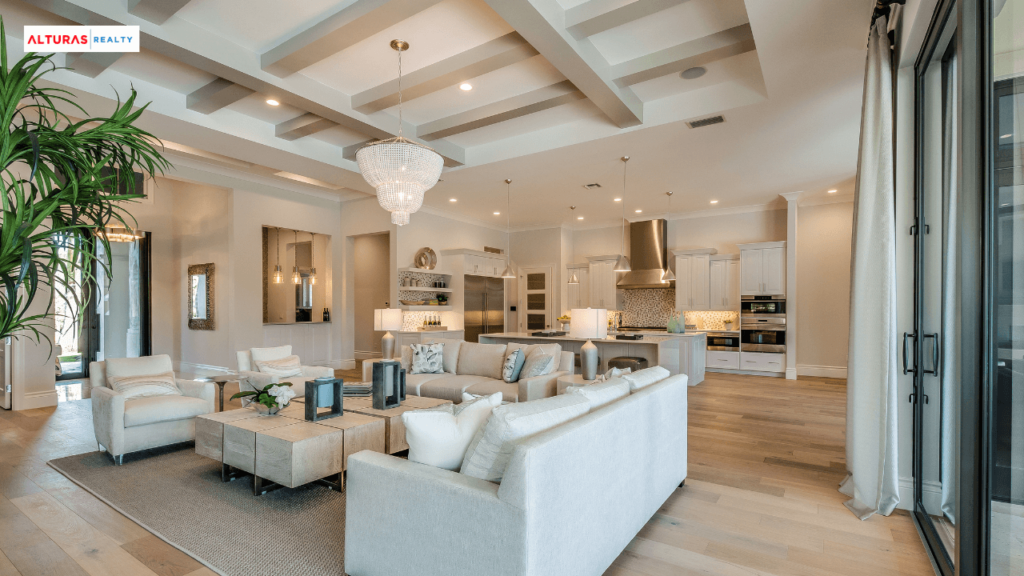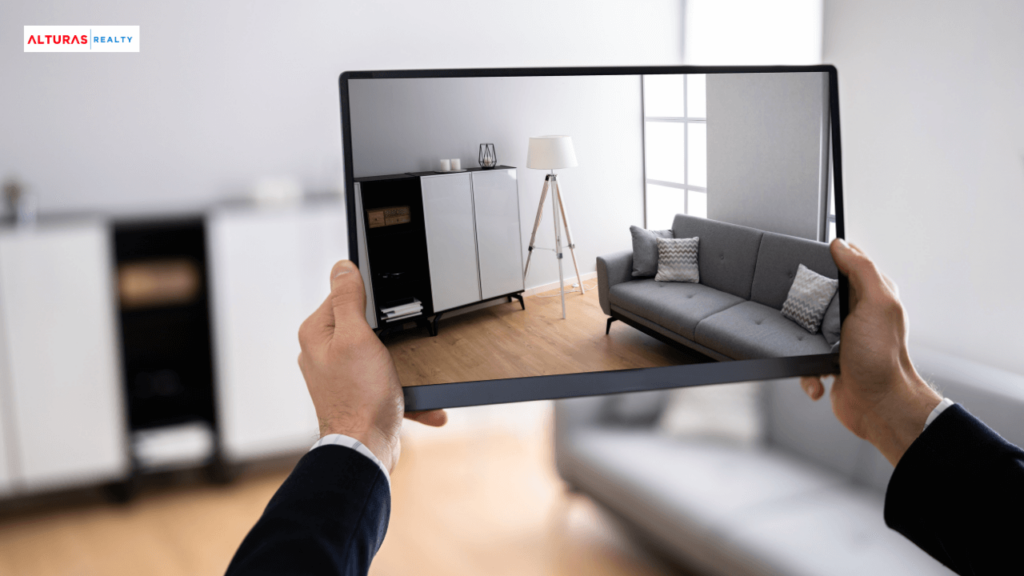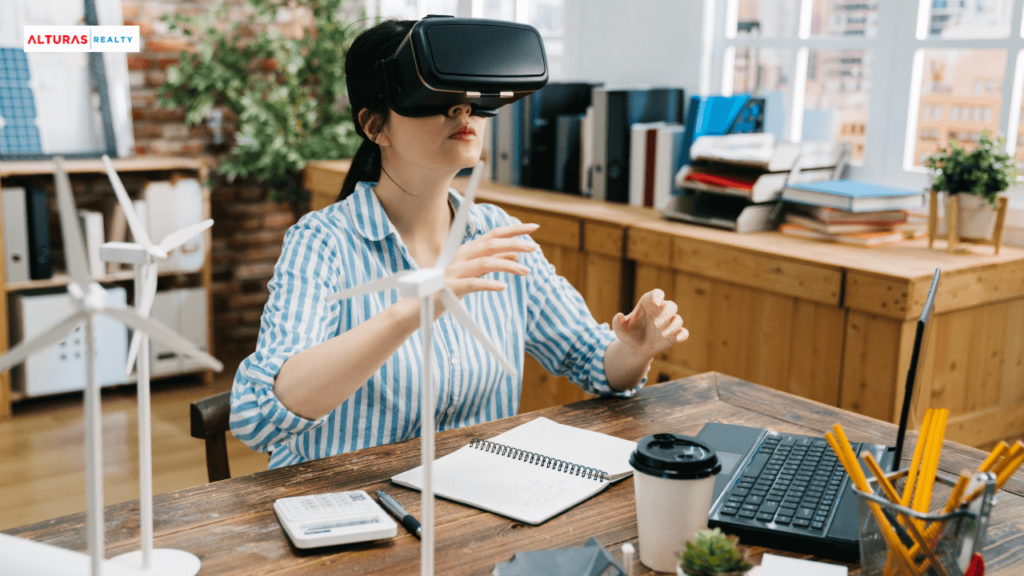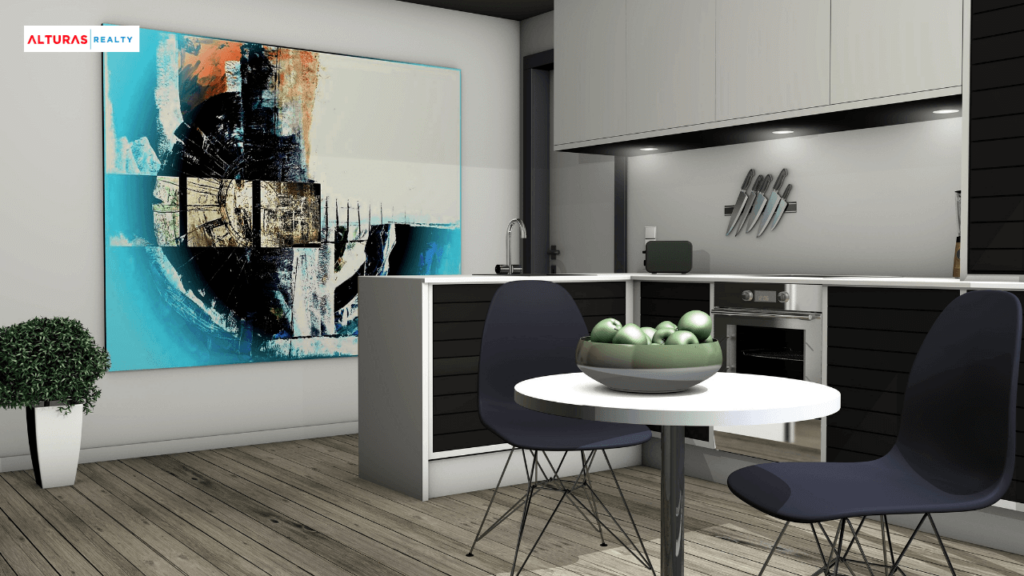
Virtual Aspects of Real Estate Industry 2023
The real estate industry has always been a hub of innovation and creativity, finding new ways to attract potential buyers and providing them with exceptional experiences. A new trend of implementing virtual technology has recently immersed the real estate industry, resulting in a significant boost in marketing aspects, property tours, effective staging, and better rates.
Now, you might be thinking, where is this virtual world used, and how does it benefit the real estate industry? If yes, then stop thinking, as we are here for you! In this article, we will be thoroughly discussing the areas of virtual aspects of real estate industry as well as its benefits. So, let’s dig in…
Virtual World and Real Estate Industry – A Productive Thought!
Using virtual technology in the real estate industry is a productive idea, as it can bring excitement and attractiveness to the property’s buying and selling processes for potential buyers. From providing an interactive and realistic experience to the buyers to detailed 3D models of the property, the use of virtual technology can greatly impact real estate transactions.
Here, we have discussed some areas where implementing virtual technology tactics can positively impact the real estate industry. Let’s have a quick look at them!
Virtual Open Houses, Staging, and Tours
Virtual open houses, staging, and tours are quite popular among real estate marketing strategies, offering a creative way to show and attract your property to potential buyers. For this, real estate professional photographers conduct 360-degree VR experiences of the home, making comprehensive and attractive videos.
Moreover, they also add background narrations, music, and subtitles to make the tour more appealing to buyers. Similarly, the VR experts use software to make the home’s virtual staging, showing high-quality empty photos and potential even when the home is not ready for staging.


Virtual Architectural Design
In virtual architectural design, a comprehensive conceptual and planning-based 3D model of the property is showcased to potential buyers. It includes the exterior, interior, entrance, garage, parking, yard, decoration, and other home elements, so the buyers can visualize and personalize the home without actually experiencing it in reality.
With the help of 3D architecture software, lighting, textures, colors, and landscaping of the property are enhanced, making it more appealing to buyers. Virtual architecture design is an immersing and creative practice to provide detailed visualization of the property to buyers so they visualize the outcome and make informed decisions.
Virtual Interior Design
Virtual interior designs in real estate industries are great practice for helping potential buyers visualize their homes by capturing high-quality photos and videos and 3D tours of empty homes. And then, with the help of virtual interior software, the real estate staging experts design the home’s interior with multiple styles.
With the virtual interior designing practice, the furniture, walls paint, ceilings, cabinets, decorations, carpets, windows, doors, and even small structures like door handles and knobs can be chosen according to preference. It is a quite successful and appealing practice in the real estate industry to appeal to and attract potential buyers.

Benefits of Implementing Virtual Aspects in the Real Estate Industry
Virtual reality has revolutionized the real estate industry, offering a wide range of benefits in marketing, staging, tours, negotiation, and other aspects of property transaction. Let’s have a look at some of the benefits below!
1. Increased Property Exposure
Virtual technology offers potential buyers a live visit to the property by breaking down geographical barriers so the buyers can see the property worldwide. Moreover, at the time of visualizing, the buyers can see every corner of the house, including its rooms, lounge, bathrooms, kitchen, yard, garage, entrance, and everything, without actually getting there. By this, the buyers will have a comprehensive tour and understanding of every aspect of the property.


2. Save Time and Efforts
Virtual technology significantly saves time and effort by providing virtual tours, open houses, and staging of homes remotely, reducing the need for multiple physical visits and the efforts required for them by both buyers and sellers. It provides flexibility to the visitors, and they can see the property repeatedly at their convenience and pace while the buyer can advertise and showcase their home to a larger audience of buyers at a time without making physical efforts. Moreover, as the property tours are available 24/7, the easy access also attracts buyers and increases their interest in buying the property.
3. Increases Fast Sale Chances and Worth
As in virtual tours, staining, and open houses, the property is presented in a captivating and appealing manner, and the potential buyers readily get attracted to it and start considering the deal. Moreover, the seller can showcase the home to a larger audience of potential buyers with their reach through the internet on different platforms. As the buyers can visualize and personalize their home through these tours, high-quality photos, and 3D structures, the chance of selling the home increases, as well as the home’s overall worth.


4. Reduces Home-Selling Expenses
Virtual technology in the real estate industry provides cost-effective benefits in reducing home-selling expenses. Firstly, the preparation costs for the staging and open houses for the buyers are reduced. Secondly, due to the buyers’ continuous physical visits, you must clean and maintain your home, and with virtual tours and open houses, you will get rid of these visits. Moreover, the traditional marketing costs of the property, like advertising your home in newspapers, printing pamphlets and billboards, are saved as the only cost is of the virtual technology, which is affordable.
5. Provides Customization and Personalization
By using virtual technology in your real estate transactions, the potential buyers experience complete customization and personalization according to their preferences. With the help of software and tools, they can design the interior of their home, including furniture, decorations, doors, windows, paint, ceilings, curtains, carpets, mats, kitchens, bathrooms, and other aspects of the home. Moreover, the buyers can also design their home’s garden, garage, and parking, having complete personalization authority over the property.


6. Comprehensive and Clear Communication
With the help of virtual tours, open houses, staging, photos, and videos, the sellers can clearly showcase the best features and defects in the home to the buyer. Moreover, specific information like the dimensions of the home, description of the elements, and room measurements can be addressed with virtual technology. By this, both the buying and selling parties can have comprehensive, clear, and transparent communication about the property having a complete understanding of every feature.
Frequently Asked Questions
Is virtual technology more beneficial than traditional marketing?
Implementing virtual technology is more beneficial than traditional marketing as it helps reach more audiences and makes the property more appealing and attractive for potential buyers.
How does using virtual technology save buyers and sellers time and effort?
Using virtual technology significantly saves the time and effort of both buying and selling parties by reducing the repeated physical visits to the property and making it accessible from all over the world. Moreover, it saves the buyers’ open houses and tour preparation costs, making it a cost-effective experience.
What does virtual technology include for the real estate industry?
Virtual technology for the real estate industry includes 3D tours of the home, live open houses and staging, interior customizations of the property, 3D architectural tours, high-quality photos, and home videography.
Final Words
The virtual aspects have greatly and positively impacted the real estate industry by simplifying the marketing and showcasing of the property. Moreover, the 3D tours, live open houses, virtual architectures, customized interiors, and increased exposure have not only saved the time and effort of both buying and selling parties but increased the chance of selling homes quickly and for higher rates.
